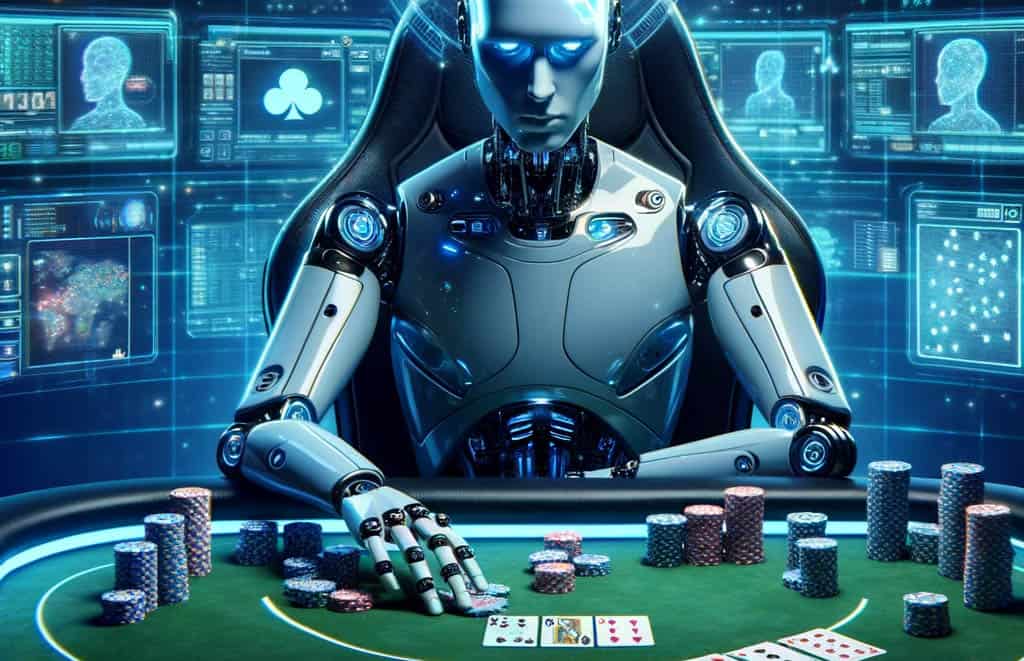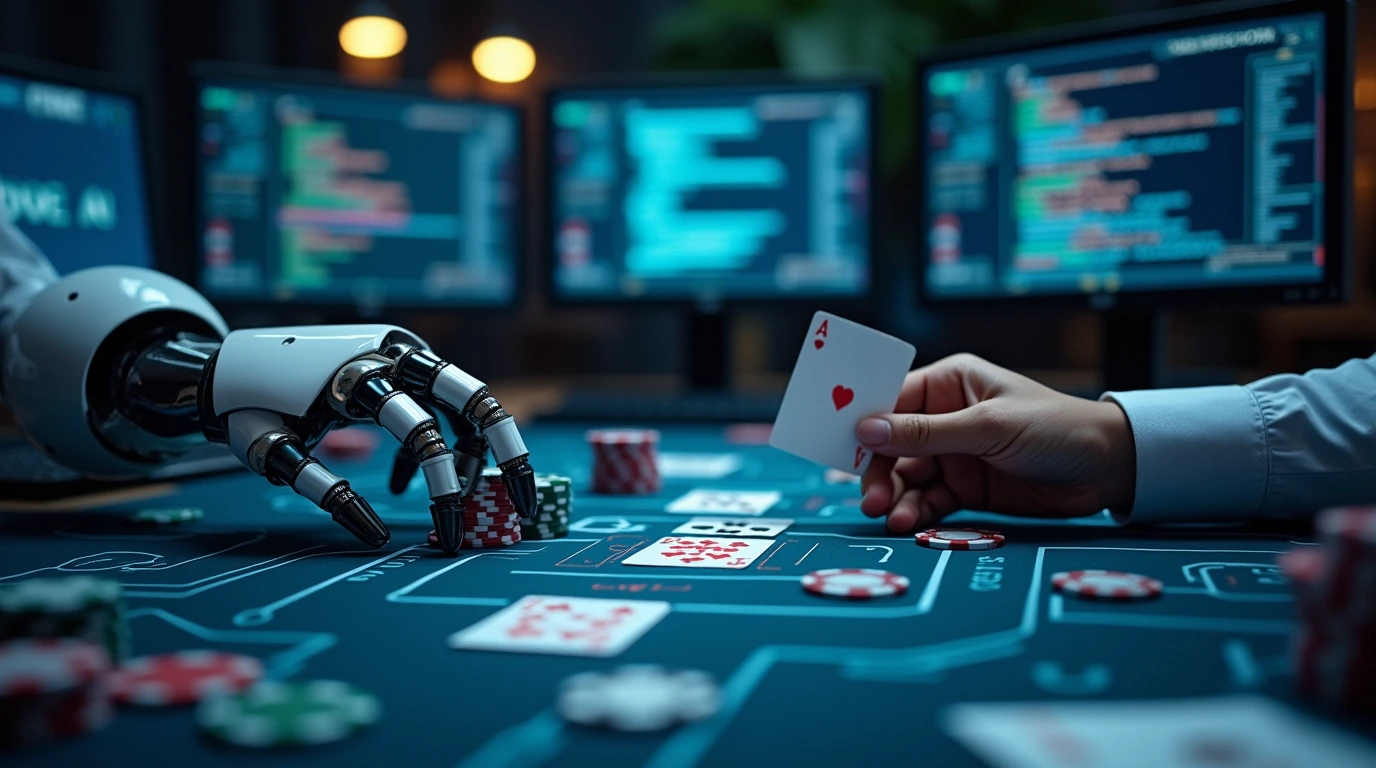Today, we are on the cusp of the next big change, powered by artificial intelligence. AI integration is changing not only the way we play, but also how we learn and improve. Artificial intelligence can analyze massive amounts of data in real time, detect patterns, predict opponents' movements and optimize strategies. This brings new opportunities, but also challenges that the poker community must confront.
- Enhanced gameplay analysis - Advanced AI capabilities allow for the analysis of large data sets in real-time, providing players with valuable insights into game strategies. AI tools can recognize patterns in opponents' behavior, predict their movements and suggest optimal strategies.
- Enhanced fraud detection and security - Fraudulent practices such as collusion between players or the use of bots have long been a challenge for online poker platforms. AI algorithms can identify unusual patterns and behaviours, effectively detecting potential cheaters. This technological advancement not only boosts player confidence, but also ensures fair and transparent play at all levels.
- Personalized gaming experience - Thanks to machine learning, AI can provide players with a personalized gaming experience. By analysing their preferences, play style and performance, platforms can recommend suitable tournaments, strategies or exclusive promotions. This personalized approach increases player engagement and ensures a unique gaming experience for each individual.

AI GTO WIZARD
The shift from intuitive strategy to data-driven strategy has changed the approach to poker at all levels, with the biggest changes yet to come, driven by advances in artificial intelligence (AI) game theory. At the heart of this revolution is the GTO Wizard AI team, which has developed the technology to solve any poker variant in a matter of seconds.
Before the advent of solvers, players relied on books, strategy guides and forum discussions, with the improvement process relying mainly on intuition and experience. With the advent of solvers, it was possible to analyze optimal strategies based on game theory (GTO), which brought new possibilities but also a challenging learning curve. Players had to spend a lot of time setting up simulations and interpreting the results. As solvers began to evolve, platforms like GTO Wizard made these tools available to a wider audience, simplifying the user interface and reducing costs.
The future of AI-driven poker study represents the removal of the limitations of pre-solved solutions. GTO Wizard allows you to customize solution parameters and analyze poker situations in seconds. Advances in rake solving and ICM+bounty have brought a new way of studying cash games and tournaments, reducing the need for multiple software tools and saving time.
AI provides fast and accurate feedback, allowing players to constantly test and refine their strategies. GTO Wizard AI combines speed and flexibility, providing players with different approaches to the game and allowing them to tailor the learning style to their needs. Going forward, GTO Wizard plans to solve any poker variant in seconds, from 2-player No-Limit Hold'em to more complex multi-player variants. The team is working on scalable algorithms that will allow for fast solutions even for larger and more complex games, without compromising on speed.
In addition to the solution itself, GTO Wizard also focuses on making the solution intuitive and easy to understand for players. The integration of large language models (LLMs) into poker tools would allow solutions to be explained more easily and make them accessible to a wider audience. The advances made by tools such as GTO Wizard will change the way players study poker, with the emphasis on speed, flexibility and personalised learning meaning that poker tools will be more powerful and accessible than ever before.

AI FAQs
Using AI in poker tournaments? Is it legal? Do poker platforms allow it?
The legality of using artificial intelligence (AI) in poker depends on the region, but in most cases it is considered a form of cheating. Laws regarding online poker and gambling are largely aimed at ensuring fairness, and the use of AI provides an unfair advantage. In many countries that regulate online poker, there are rules prohibiting any form of assistance during play, including the use of bots. If a player is caught using AI, they can face serious consequences such as loss of winnings or, in extreme cases, criminal prosecution. While there may not be specific laws on the use of AI in unregulated markets, poker platforms often still enforce rules against bots.
Do poker platforms allow AI?
No. Most poker platforms clearly prohibit the use of AI or bots. Regardless of whether you play on the big platforms like PokerStars or GG Poker, or on smaller sites, they all have strict rules to ensure fairness of play. These platforms invest heavily in detecting behaviour that resembles robots. They use algorithms to identify patterns that are too mechanical or perfect to come from human players. If a player is found to be using a poker bot or AI, they can counter:
- Permanent account suspension
- Confiscation of money or winnings
- In some cases, legal action, depending on the legal jurisdiction of the platform.

Are there any exceptions for using AI?
Generally, the use of AI is prohibited in competitive poker, but there are some exceptions in non-competitive environments:
- Research: AI is used to develop poker bots as part of research projects. Systems such as Libratus and Pluribus were created in controlled environments to test the limits of machine learning, but were not designed to participate in regular online poker games.
- Friendly games: Some people experiment with bots during home games or in non-competitive environments, but even in this case it is considered an unfair way to play.
Although AI can analyse hands better than humans, its use in poker tournaments is almost universally banned. It damages the spirit of the game, and most poker platforms are very strictly opposed to it.




